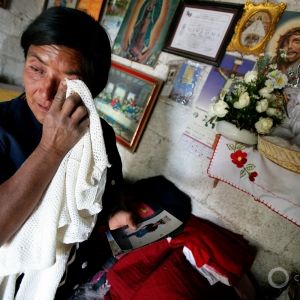The Stream, August 25, 2021: Deadly Floods In Belgium and Germany Last Month Could Become More Common
YOUR GLOBAL RUNDOWN
- New research finds that deadly floods in Germany and Belgium last month are rare but will become more likely in the future.
- Flash floods in Tennessee could become more common as climate change worsens.
- A water crisis in parts of the Middle East has threatened water, food, and energy supplies to 12 million people in Syria and Iraq.
- Opponents argue a proposal for a nuclear waste disposal site in a small town in the Canadian province of Ontario could pollute Lake Huron, which sits less than 30 miles away.
Officials in the Indian state of Karnataka propose a project to supply treated water from the Vrishabhavathi river in Bengaluru to water-deprived regions.
“We are so irresponsible as a regulatory body that we allow the industries to pollute the water bodies.” – TV Ramachandra, a scientist at the Centre for Ecological Science at the Indian Institute of Science-Bengaluru. The Hindustan Times reports that government officials in the Indian state of Karnataka has proposed a project to supply treated water from the Vrishabhavathi river in Bengaluru to water-deprived regions. The project would salvage existing drain inlets on the river — which over the years has deteriorated due to apathy, unchecked flow of sewage water and industrial pollutants — and pump more than 300 million liters to surrounding areas each day. Ramachandra, who has authored several papers on water in Bengaluru, said the project would be worthwhile if the water is treated to remove heavy metals.
IN RECENT WATER NEWS
In Case You Missed It:
HotSpots H2O: In Malaysia, the Mah Meri Resist Eviction from Coastal Homeland – A proposed beach resort dubbed a “world-class eco-city” is threatening to evict Mah Meri families from one of their oldest coastal towns, what is today known as Bagan Lalang.
What’s Up With Water – August 23, 2021 – This week’s episode of What’s Up With Water covers Afghanistan’s troubled water sector, water availability in the United States amid the pandemic, and an African nonprofit claiming that the textile and apparel industry is poisoning rivers with polluted wastewater.
Flash Floods That Killed Almost Two Dozen In Tennessee Could Become More Common
Flash floods in Tennessee killed 22 people, although officials estimate the death toll is higher, according to Al Jazeera. Record-breaking rain on Saturday sent floodwaters pouring through parts of Middle Tennessee, completely taking out homes, roads, cellphone towers, and telephone lines. NPR reports that similar flooding events could become more common in the Southeast United States, according to the most recent National Climate Assessment.
- Why it matters: The 2018 National Climate Assessment underscores troubling knowledge gaps about how the projected increase in extreme storms and heat will affect the nation’s water supply. Driven by increases in heat-trapping greenhouse gas emissions, the global average temperaturehas increased roughly 1 degree Celsius (1.8 degrees Fahrenheit) since 1850, which has thrust the climate into new territory. More frequent, intense drought and rainfall combined with deteriorating infrastructure are reducing resilience, the lead author of the report’s water chapter, Upmanu Lall, told Circle of Blue.
TODAY’S TOP WATER STORIES, TOLD IN NUMBERS
9 TIMES MORE LIKELY
New research from the World Weather Attribution found that although rare, deadly floods like one that killed more than 200 people in Germany and Belgium last month are 1.2 to 9 times more likely due to climate change. The scientists found that the record rainfall that led to the flooding was a 400-year event, although warming global temperatures make the event more likely now than it would have been more than a century ago. Rainfall, however, doesn’t tell the whole story. River flow and water levels are better indicators of a storm’s eventual impact, the researchers said. In Germany and Belgium, unfortunately, instruments used to provide that data were swept away by flood waters.
12 MILLION
A new report by 13 aid groups warned that 12 million people in Syria and Iraq are losing access to water, food and electricity amid an ongoing water crisis, according to Al Jazeera. The report warned that higher temperatures caused by climate change increased the risks and severity of droughts in parts of the Middle East.
ON THE RADAR
The rural town of Teeswater, Ontario, could become the home of Canada’s first spent nuclear fuel repository. CBC reports that nuclear industry officials have begun drilling deep into the town’s bedrock, to understand how groundwater interacts with water deep underground and how it moves through the bedrock. The potential of the project, which will cost $23 billion and take 40 years to complete, has become a divisive issue among locals. While some argue the project provides a safe place to store nuclear waste, others say the area’s proximity to Lake Huron makes the project too risky to carry out.
Jane is a Communications Associate for Circle of Blue. She writes The Stream and has covered domestic and international water issues for Circle of Blue. She is a recent graduate of Grand Valley State University, where she studied Multimedia Journalism and Women, Gender and Sexuality Studies. During her time at Grand Valley, she was the host of the Community Service Learning Center podcast Be the Change. Currently based in Grand Rapids, Michigan, Jane enjoys listening to music, reading and spending time outdoors.







Leave a Reply
Want to join the discussion?Feel free to contribute!